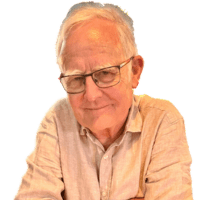Predictive models of cells are needed to understand biology, rationally design microorganisms, and precisely treat disease. Numerous challenges must be overcome to develop predictive models of entire cells. This seminar aims to stimulate discussion about how to overcome these challenges and foster an interdisciplinary cell modeling community.
Building Models and Publishing Models Seminar Series
Motivation
Each month we feature a researcher who has developed a tool or method to support complex modeling, or an expert in theoretical approaches which can be used to address modeling challenges. We will discuss experimental, computational, and mathematical challenges to modeling, current state-of-the-art techniques, and future directions for the field. We are looking for students, postdoctoral researchers, and faculty who value collaborative problem-solving and are interested in learning about the most recent developments in modeling biological systems.
Join the Cell-Modeling-Seminar Google Group to receive mailing list updates or email Eran Agmon to suggest new software or modeling results that you would like to present during upcoming seminars or workshops.
Details
Day/Time
See seminar schedule below.
Location
Online using Zoom
Registration required.
Register for individual seminars below.
Format
50-minute presentation
10-minute group discussion
Using Bond Graphs to Ensure Thermodynamic Consistency in Biophysical Models
Dr. Peter Hunter FRS, FRSNZ
Director – Auckland Bioengineering Institute
Wednesday, November 13, 2024
4 PM Eastern | 3 PM Central | 1 PM Pacific
Register here

Dr. Hunter is a professor and the founding director of the Auckland Bioengineering Institute at the University of Auckland. He serves as co-director of Computational Physiology at Oxford University and holds honorary or visiting professorships at several universities worldwide. Dr. Hunter is a member of scientific advisory boards for various research institutes across Europe, the U.S., and the Asia-Pacific region. He will discuss the application of bond graphs in ensuring that biophysical models adhere to essential conservation laws, including mass, charge, and energy. This approach facilitates multi-scale modeling of physiological systems, encompassing biochemical, electrical, mechanical, and thermal energy transfers.
Improving Reuse with Continuous Scientific
Processes
Dr. Rowan Cockett
CEO of Curvenote
Friday, November 15, 2024
4 PM Eastern | 3 PM Central | 1 PM Pacific
Register here

Rowan Cockett, Ph.D., is the founder and CEO of Curvenote, a platform advancing science communication by enabling interactive, reproducible, and richly-linked scientific content. Curvenote works with scientific societies, lab groups, and individual researchers to replace static PDFs with computationally integrated formats. Dr. Cockett’s talk, Improving Reuse with Continuous Scientific Processes, will highlight Curvenote’s collaborative efforts with organizations like the Microscopy Society of America and the American Geophysical Union to enhance science publishing through tools that support open-science, reproducibility, and interactive data sharing.
On Steroids! Modeling 11-Oxygenated Androgen Levels in Chronic Kidney Disease
Dr. Jacky Snoep
Professor of Biochemistry
Stellenbosch University
Wednesday, December 11, 2024
2 PM Eastern | 1 PM Central | 11 AM Pacific
Register here

Professor Jacky Snoep is a leading researcher at Stellenbosch University, specializing in mechanistic modeling of health and epidemiology. He is actively engaged in Computational Systems Biology, focusing on metabolic modeling in various disease states, including malaria and type 2 diabetes. Dr. Snoep will illustrate the combined experimental and modeling approach for steroid metabolism in chronic kidney disease and polycystic ovary syndrome. The focus will be on the modeling workflow across biological organization levels: molecules → enzymes → pathway → tissue → whole body modeling in patients.
Inference of Large-Scale Boolean Models from Human-Curated, Fully Annotated Process Description Diagrams: Focus on Rheumatoid Arthritis
Dr. Anna Niarakis
Professor of Computational Systems Biology University of Toulouse III-Paul Sabatier
Friday, December 13, 2024
12 PM Eastern | 11 AM Central | 9 AM Pacific
Register here

Dr. Anna Niarakis, Professor of Computational Systems Biology at the University of Toulouse III-Paul Sabatier, specializes in complex human diseases, with a focus on autoimmune disorders. Her talk, “Inference of Large-Scale Boolean Models from Human-Curated, Fully Annotated Process Description Diagrams. Focus on Rheumatoid Arthritis,” will introduce CaSQ, a tool developed to transform static molecular interaction maps (MIMs) into dynamic Boolean models. By converting detailed, annotated maps into standardized, interoperable models, Dr. Niarakis’s work aims to enhance understanding and reproducibility in disease modeling, with applications demonstrated in Rheumatoid Arthritis research.

